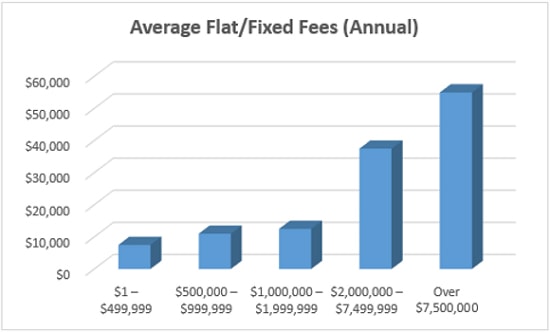
Working as a consultant can be both challenging and rewarding. You have very limited autonomy and are restricted in your ability to take initiative. But, you also have a lot of learning opportunities and the opportunity to develop. It is also easier to reorganize and transform companies at large consulting firms. This makes it a rich and diverse experience. Here are some of your benefits and disadvantages when working for a consulting firm.
Benefits of working for a mid-sized consulting firm
Many advantages come with working for a mid-sized firm of consultants. Flexibility is one of the benefits. It allows you the freedom to work on projects within your company without following a strict schedule. The opportunities for professional advancement are also greater in mid-sized firms. For those looking to make a career out of it, you won't be restricted to a limited range of projects.
Consultants in mid-sized firms are often offered reimbursement to cover travel expenses. These reimbursements can range from R400 to more than R1500 per day, depending on location. Some companies will only reimburse consultants who have traveled outside of their home country. Others charge fees according to international standards.

Travel requirements
Each job in a consulting firm comes with its own challenges. The requirement to travel is one of the challenges. The majority of your work week will see you on the road four out five days. Weekends are when you won't be traveling. Consultants often work 12-hour days. And you will likely have to work with a new team of people every few months.
The amount of travel needed varies between firms and projects. The amount of travel will depend on the nature of the project and the staffing model of the firm. Some firms use a local staffing model while others use a global or regional model. A majority of consultants will travel around three to four times per week to complete a project that is not within their office.
Culture in large consulting firms
Large consulting firms can have very different cultures. There are some that have a more structured structure while others prefer an informal approach. A large number of consulting firms also have higher benefits packages, budgets, and more resources for talent development, corporate parties, and marketing. You will need to consider your individual preferences and goals before deciding if a large consulting company is the right fit for you.
There are some practices you should avoid if your goal is to create a healthy working environment. Firms with rigid cultures are not a good idea if you want to promote collaboration.

Looking for a job in consulting?
The most important thing to remember when trying to land a job as a consultant is to be proactive. Networking with other consultants is a must. You can do this offline by joining industry organizations or online by using social media. Join relevant groups and keep your profile updated online. Indeed is a great place to search for consulting jobs. These sites feature listings from some of the largest consulting firms, and you can sign up for job alerts.
First, you must decide what field of expertise you want to specialize in. Whether your goal is to work in supply-chain management or finance, it's important to determine the industry you are trying to reach. Once you have narrowed the field down, you can begin building your network. Also, you must be honest about how prepared you are to work. You should also be organized and have clear goals. You will be able to become a consultant if you follow these steps.
FAQ
Who hires consultants
Many businesses hire consultants to assist them with their projects. These consultants can be found in small and large businesses as well as government agencies, universities, educational institutions, non-profits, and education institutions.
These consultants may work directly for the organization, or freelance. In both cases, the process for hiring depends on how complex and large the project is.
You will likely go through multiple rounds of interviews when hiring consultants before you choose the candidate you feel is the best fit for the job.
What are the types of contracts available to consultants?
Standard employment agreements are signed by most consultants when they are hired. These agreements outline how long the consultant will work for the client, what he/she will get paid, and other important details.
Contracts may also include details about the specific areas of expertise that the consultant is going to be focusing on as well as how they will be compensated. An agreement could state, for example, that the consultant will offer training sessions, workshops and webinars.
Sometimes, the consultant just agrees to complete certain tasks within a defined timeframe.
Many consultants sign independent contractor arrangements in addition to standard employment contracts. These agreements allow the consultant work on his/her own but still receive compensation for his/her efforts.
Which industries use consultants
There are many types and styles of consultants. Some are specialists in one type or another of business.
Some consultants work only for private companies, while others represent large corporations.
And some consultants work internationally, helping companies all over the world.
How much should you charge as a consultant?
It all depends upon what you offer. It doesn't matter if you offer services at no cost. But if your services or products are for sale, you will need to establish prices that reflect their value.
If you are providing low-quality services, then you don't have anything to sell. You are not worth anything, so why should anyone pay you anything.
If you're providing high-quality services you might ask for a greater price. Because people are aware of the value you provide, they will be more willing to pay you a higher rate. Also, clients who purchase multiple packages from your company may get discounts.
What is the real value of consulting?
Consulting is not only a good entry-level job for people looking to make quick money.
Consulting offers many opportunities in project management as well as business development, strategy and training. Projects could include small start-ups or large international corporations.
Consulting offers you the chance to improve and sharpen your skills as well as gain valuable experience across a range industries. This could be learning to manage people, write proposals and manage budgets, analyze data and create presentations, or conduct market research.
Why should you hire consultants?
There are many reasons you might need to hire a consultant.
-
An organization might have a particular problem or project that requires solving
-
You want to improve or learn new skills.
-
It is important to work with an expert on a subject area
-
No one else is available to take on the task.
-
It's overwhelming to see all the information, and you don't know how to get started.
-
You can't afford full-time employment
The best way to find a good consultant is through word of mouth. Ask your friends and colleagues if they know of any trustworthy consultants. If you are already acquainted with someone who works as an advisor, ask them for recommendations.
If you choose to use online directories such LinkedIn, make sure to use the "Search People” function to locate consultants in your area.
Statistics
- So, if you help your clients increase their sales by 33%, then use a word like “revolution” instead of “increase.” (consultingsuccess.com)
- "From there, I told them my rates were going up 25%, this is the new hourly rate, and every single one of them said 'done, fine.' (nerdwallet.com)
- WHY choose me: Why your ideal client should choose you (ex: 10 years of experience and 6-week program has helped over 20 clients boost their sales by an average of 33% in 6 months). (consultingsuccess.com)
- Over 62% of consultants were dissatisfied with their former jobs before starting their consulting business. (consultingsuccess.com)
- 67% of consultants start their consulting businesses after quitting their jobs, while 33% start while they're still at their jobs. (consultingsuccess.com)
External Links
How To
How do you find the best consultant?
The first thing to do when looking for a new consultant is to ask yourself what you want from him/her. You should know exactly what your expectations are before you start searching for someone. A list of what you expect from a consultant is helpful. This list could include technical expertise, project management skills, communication skills and availability. Once you've listed out these requirements, then you may want to consider asking some friends or colleagues who they would recommend. Ask your friends or colleagues about any negative experiences they have had with consultants, and compare their recommendations with yours. You can also do some online research if you don't know of any. There are many websites, such as LinkedIn, Facebook, Angie's List, Indeed, etc., where people post reviews of their previous work experiences. Consider the ratings and comments of other candidates and use these data to start your search for potential candidates. After you've compiled a list of potential candidates, it is time to reach out to them and schedule an interview. During the interview, you should talk through your requirements and ask them to explain how they can help you achieve those goals. It doesn’t matter who recommended them to you, just make sure they understand what you are trying to achieve and how they can help.